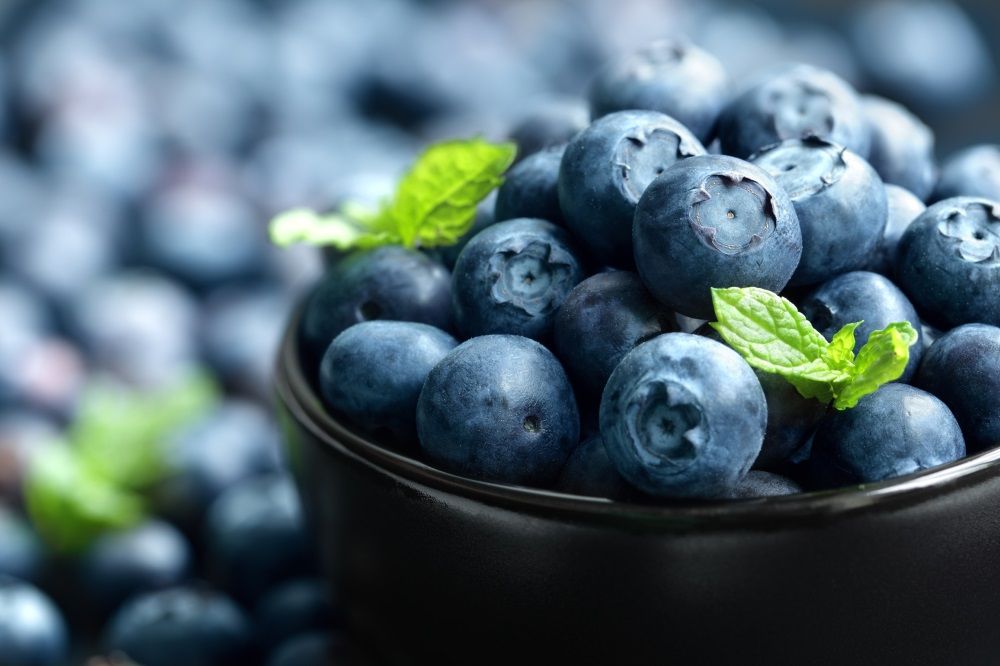What Makes a Food a Superfood?

If you sat with an older generation of folks and mentioned the term “superfood” they may not quite grasp what it is you are talking about. The term “superfood” is being used more and more, we are being exposed to it more and products on the shelves are boasting this term, we are becoming spoilt for choice with the range of products advertising that they are a superfood or contain superfoods. The term “superfood” has actually been around from as far back as 1915 even though there is actually no exact definition for it.
So, what is a superfood?
They are vibrant, nutritionally dense foods that have a high concentration of vital nutrients, vitamins and/or minerals, as well as antioxidants, healthy enzymes, and good fats. A superfood offers tremendous healing and dietary potential.
A superfood’s nutrient composition is a lot higher than what our body’s nutritional needs are to survive.
In essence, they pack all of the good stuff we should be having in our daily diet to be as healthy as possible.
What makes them so super? Superfoods consist of the following key elements:
- Minerals
- Amino Acids
- Clean Protein
- Enzymes
- Good Fats
- Vitamins
- Essential Fatty Acids
- Antioxidants
Superfoods are also rich in phytochemicals; they are known to be able to fight diseases.
What to look for in a superfood:
Nutrient Density:
This is the measurement of how much of any given nutrient the food contains, this is in relation to how much is in one serving. Superfoods are nutrient dense and should contain high concentrations of nutrients.
Nutrient Diversity:
This is the measurement of how many different nutrients are present in one given food product. Superfoods will have a variety of different nutrients.
Toxin Absence:
Essentially, superfoods should be clean, hormone-free, and chemical and pesticide free. You are consuming superfoods so you can provide your body with as many nutrients as possible, you do not want the nutritional value compromised if the nutritional source has been affected by pesticides or hormones, they need to be as organic as possible.
Examples of common superfoods include:
- Garlic
- Cranberries
- Blueberries
- Quinoa
- Kale
- Watermelon
- Red Grapes
- Brussel Sprouts
- Mulberries
- Cacao
- Mangoes
Examples of superfoods that is less common:
- Pomegranate
- Acai
- Goji Berries
- Chia Seeds
- Golden berries
- Papaya
- Flax Seed
Why do we consume superfoods?
One single food cannot provide every single nutrient that the body needs. This means that you need to consume a variety of different foods that are rich in nutrients, throughout the day.
Even if you eat a variety of foods, you may not be getting all of the nutrients that your body needs to stay healthy. Time is also a problem too, some food preparation methods can actually destroy and take away some of the nutritional value of food, not everyone has the time to fully prepare nutritional meals throughout the day.
This is where superfoods really come to the rescue for our bodies; they have more nutrients per gram of volume, you will be getting more nutrients for every bite or sip than you would from any other healthy food, plus you save time on preparation if you eating a single superfood fruit or vegetable or using superfood green powders.
Superfoods also contain antioxidants which are known to protect our organs from cell damage and they help the body to fight off diseases. Superfoods help our body and benefit us in various ways from boosting our immunity levels to helping us have an increased source of natural energy; you do not need that morning cup of caffeine if you are consuming superfoods.
Food is no longer just food when there are superfoods. The term “superfood” may not be scientifically defined, but they are functional foods and highly beneficial for us. Nowadays the term is being stretched by marketers and it may be hard to tell if a food really is a superfood; pay close attention to nutrient density (the grams per serving of each nutrient) and to the diversity of nutrients.
Also evaluate if the food is free from chemicals and pesticides, as well as hormones. Superfoods are rich in antioxidants and enzymes too. Nutritionists may not favor the term, but superfoods really are super for our bodies and the best way to find out is to try them for yourself.
